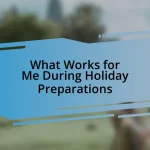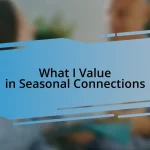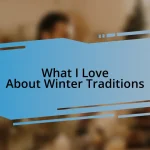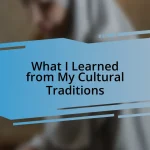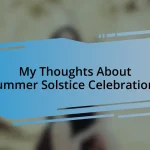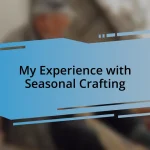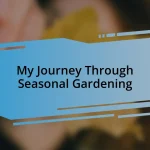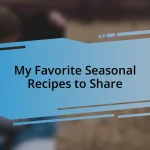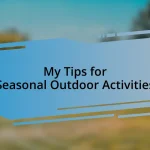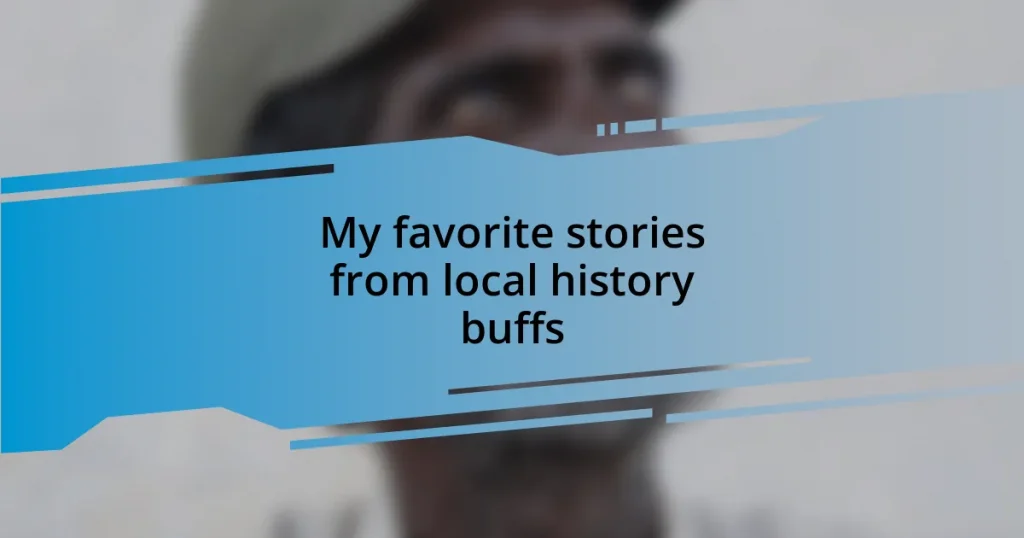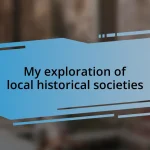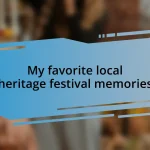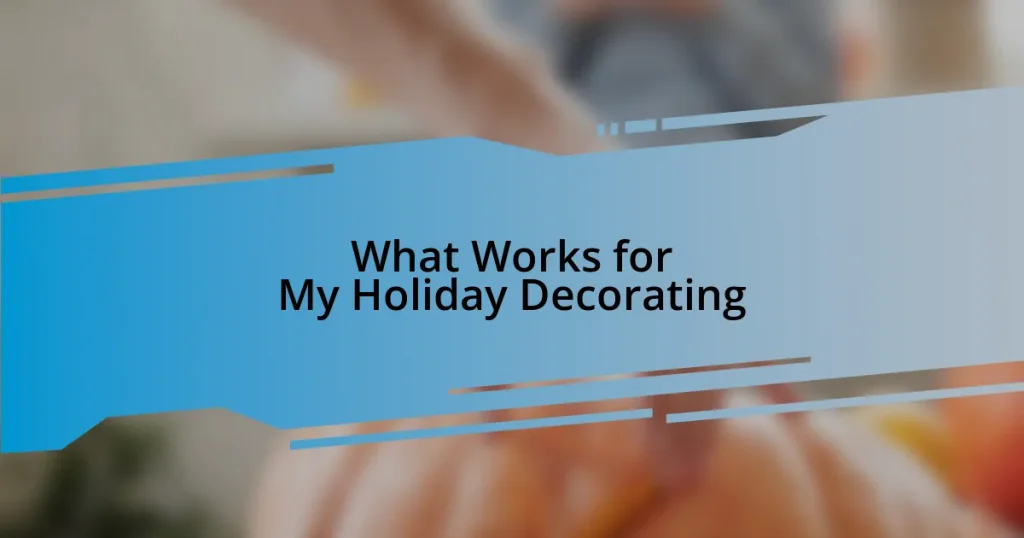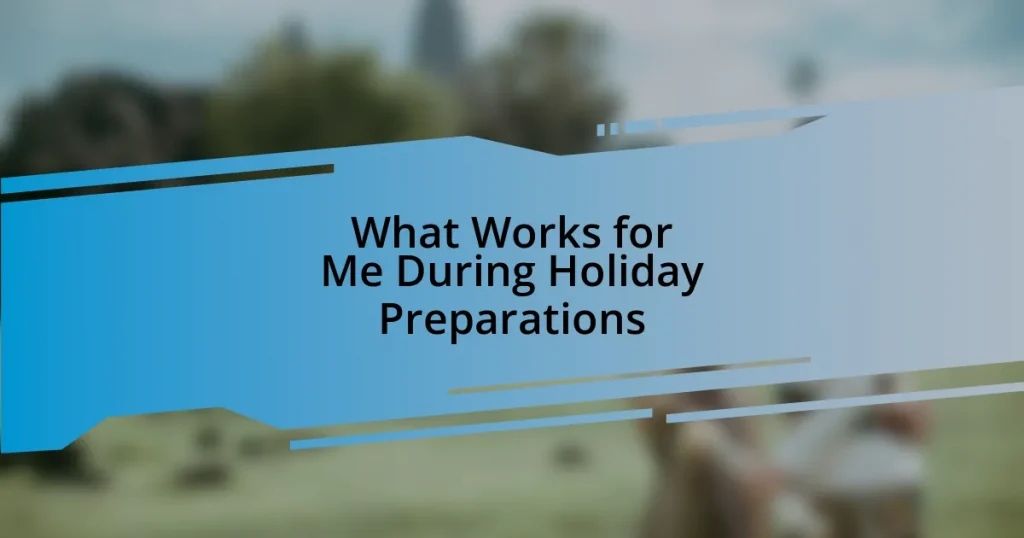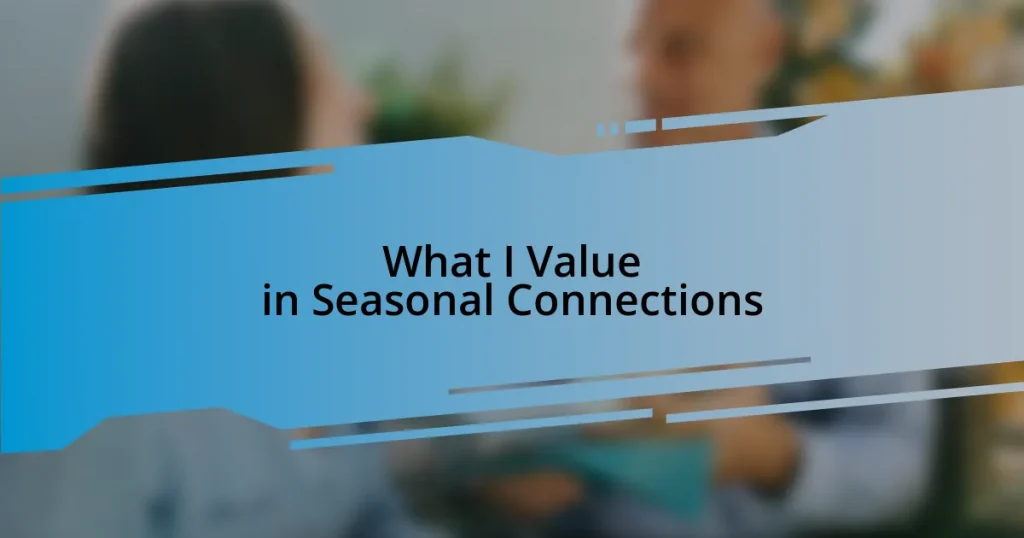Key takeaways:
- Local history enthusiasts play a vital role in preserving community narratives, fostering connections and ensuring collective memory is not lost.
- Engagement with local history enhances community involvement and a sense of belonging, motivating individuals to participate in preservation efforts.
- Sharing personal stories evokes emotional connections and helps shape community identity, leading to collaborative projects and increased interest in local history.
- Documenting local history through interviews and recordings allows for a deeper understanding and appreciation of past experiences, enriching community heritage for future generations.
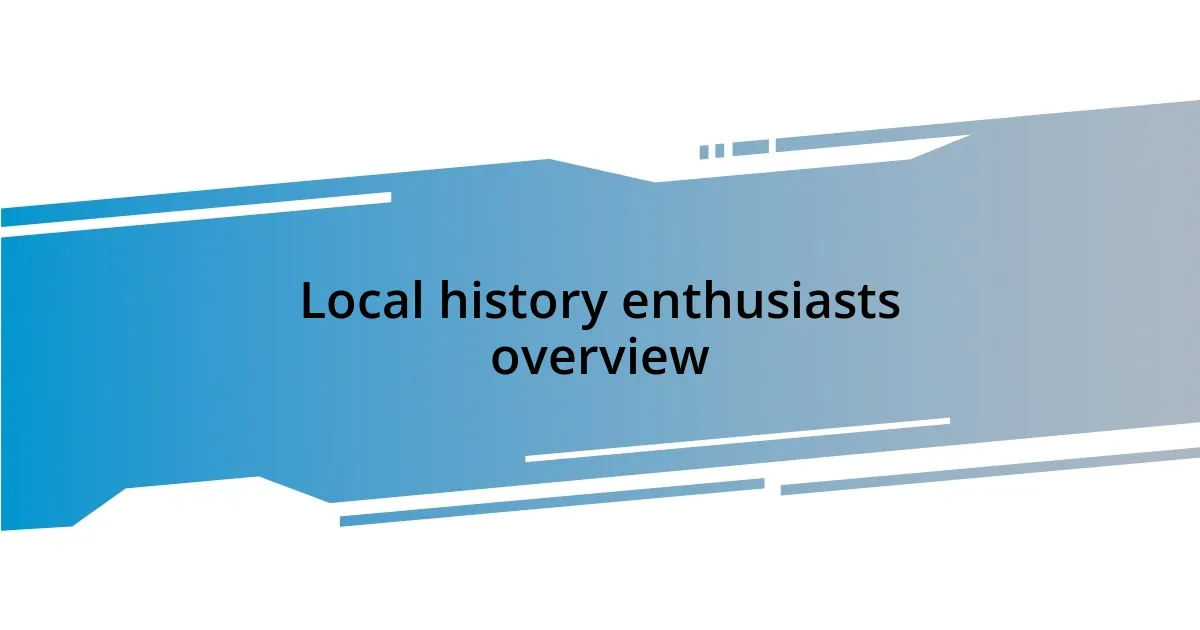
Local history enthusiasts overview
Local history enthusiasts are a passionate group, often driven by a deep appreciation for the stories that shaped their communities. I remember chatting with a local historian at a neighborhood fair, where he shared how a forgotten mill played a pivotal role in our town’s development. Isn’t it fascinating how one small detail can unravel an entire narrative?
These individuals often become the keepers of collective memory, ensuring that the past isn’t lost to time. I’ve seen people light up when they find an old photograph or an article that unearths a hidden piece of their community’s identity. What drives this passion? Is it the thrill of discovery or a desire to connect with something larger than themselves?
Their gatherings might seem small, but the conversations are vibrant and layered with insights. I once attended a local history talk where attendees shared their family’s ties to a historic landmark, revealing not just facts, but heartfelt stories that resonated across generations. It makes me wonder how many other untold stories are just waiting to be discovered in our communities.
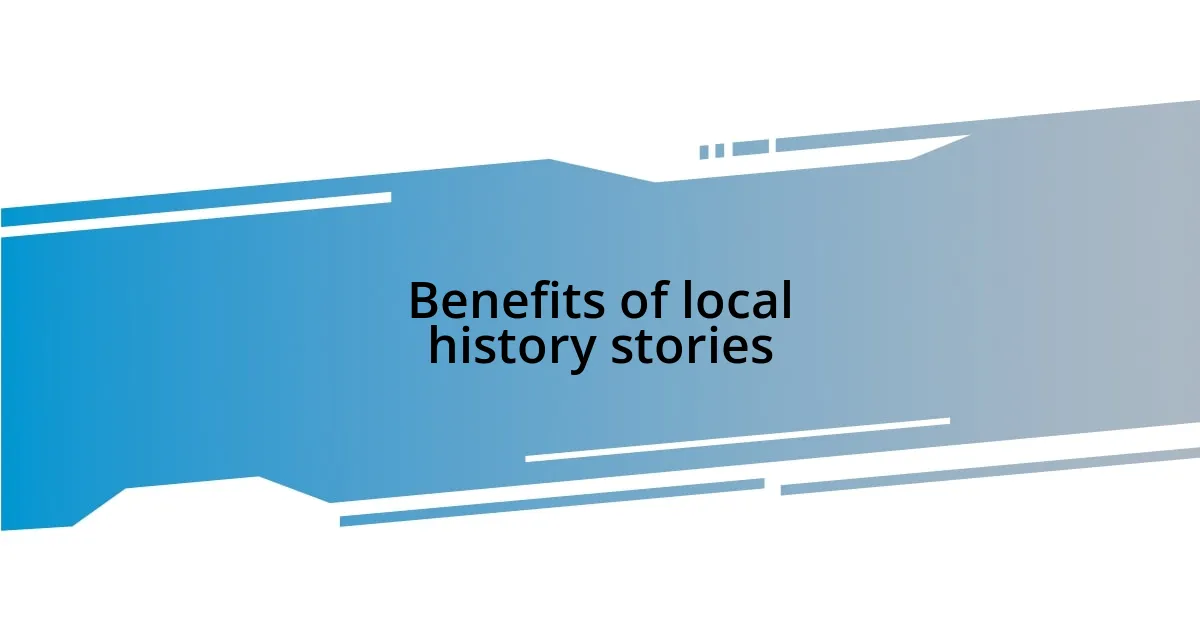
Benefits of local history stories
Local history stories offer a unique lens through which we can understand our present. When I’m listening to someone recount tales from our town’s past, it feels like I’m traveling back in time. Each story adds texture to my understanding, reminding me that my community’s identity is built on real experiences and emotions. Have you ever felt a surge of pride when discovering that your neighborhood was once home to a revolutionary figure? It’s an exhilarating connection.
Additionally, these stories often foster a sense of belonging. I recall attending a local history evening where residents shared their ancestors’ roles during significant events. As each person spoke, I felt the walls of separation dissolve. Suddenly, we weren’t just neighbors; we were part of a living tapestry interwoven with shared heritage and common narratives. Doesn’t it feel empowering to know we all have a part in our community’s saga?
Lastly, engaging with local history can boost community involvement. When people learn about the stories that shape their surroundings, they often seek to preserve that legacy. For instance, after attending a lecture on our town’s historic library, I became inspired to volunteer for preservation efforts. It’s remarkable how these narratives motivate us to take action, ensuring that future generations appreciate our collective past.
| Benefit | Description |
|---|---|
| Understanding | Gaining insight into the community’s past enriches our present perspective. |
| Belonging | Sharing stories fosters connections among community members, creating a sense of unity. |
| Involvement | Learning about local history often inspires individuals to engage in preservation efforts. |
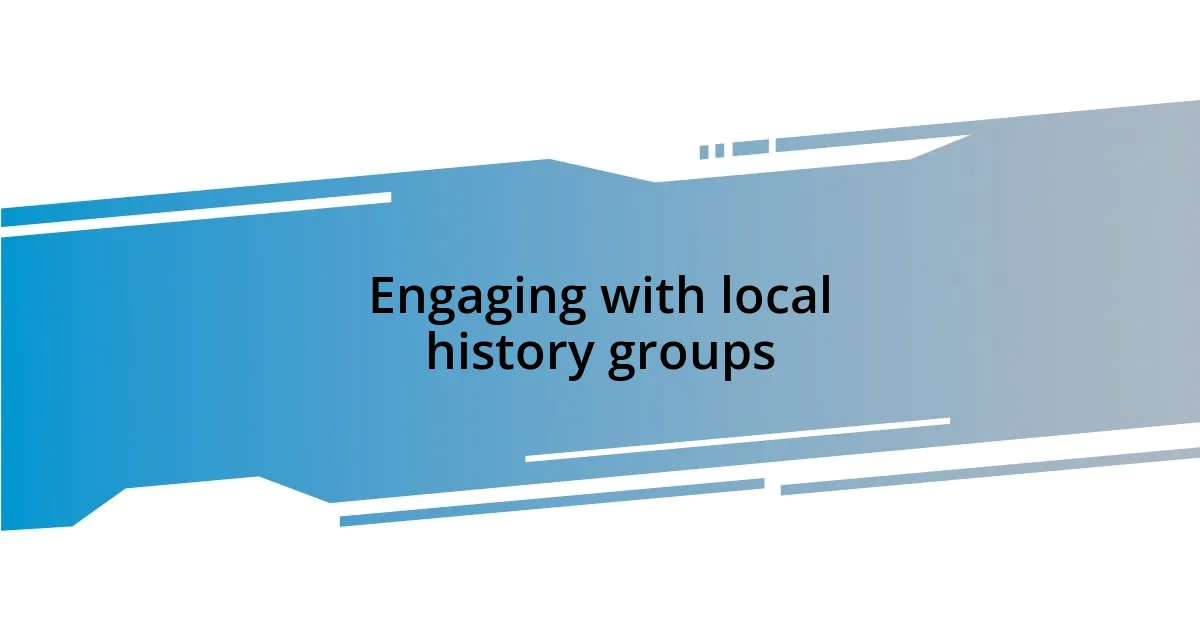
Engaging with local history groups
Joining local history groups can be an enriching experience. I remember my first meeting, when I felt a mixture of excitement and nervousness. Surrounded by individuals who shared my passion for the past, I quickly realized that these gatherings offer more than just facts—they’re opportunities for connection and collaboration. Listening to members share their research and experiences sparked my curiosity, urging me to dig deeper into my own neighborhood.
Here are some ways to engage with local history groups and enhance your experience:
- Attend meetings regularly: Building relationships with fellow history buffs can deepen your appreciation for local narratives.
- Participate in discussions: Don’t hesitate to share your thoughts or personal stories; you never know who might resonate with your experience.
- Volunteer for projects: Getting involved in preservation or outreach efforts can turn your passion into action.
- Connect online: Many groups have social media pages or forums where you can share resources or ask questions, expanding your engagement beyond physical meetings.
- Host events: If you have a story to tell, organizing a community event can invite others to share their narratives and foster a collaborative environment.
Engaging with local history groups isn’t just about relaying facts; it’s about building a tapestry of shared stories and emotions. On my journey, I discovered a group focused on preserving oral histories. The first time I sat in on a recording session, I was struck by the warmth in the room. As neighborhood elders shared anecdotes that had been passed down through generations, I felt a profound connection to my roots. Each tale was a thread weaving together our community’s rich fabric, and I left that day with a heart fuller than when I arrived.
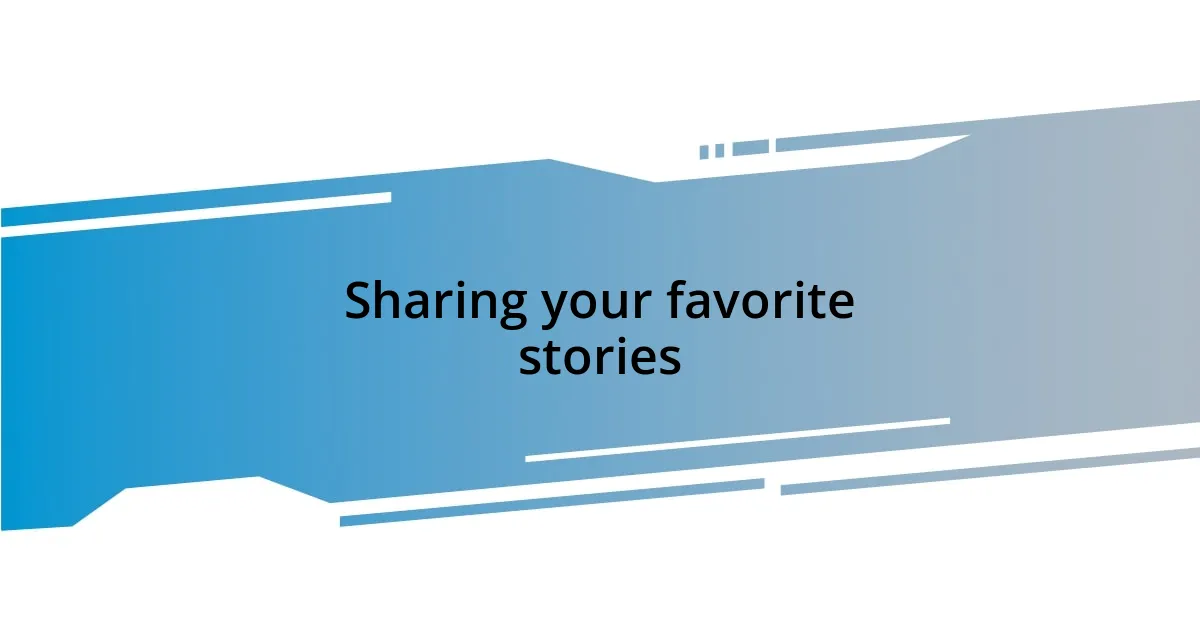
Sharing your favorite stories
Sharing stories about our local history is a simple yet powerful way to connect with one another. I fondly remember a small gathering where an elderly neighbor recounted how she watched the first streetlights being installed in our town. Her eyes sparkled with nostalgia as she shared the excitement of that moment, leaving everyone in the room captivated. Have you ever shared a moment like that? It creates a bond that transcends time.
What makes these exchanges so special is the emotions they evoke. I once sat in a circle of history enthusiasts when a member began to share the tale of their family’s struggles during a significant local event. By the end of that story, there wasn’t a dry eye in the room. It reminded me that our histories are not just dates and events; they are filled with struggles, triumphs, and the human spirit. Do you remember the last story you heard that made you feel an emotional connection to your community’s past?
The stories we share can shape our collective identity too. After a particularly engaging session, I felt inspired and decided to write about our town’s hidden gems. Sharing those lesser-known stories invited others to contribute their knowledge, leading to a collaborative history project that drew in more members of the community. Isn’t it fascinating how a shared narrative can spark interest and involvement from so many? This collective exploration enriches not just our understanding but also our bonds within the community.
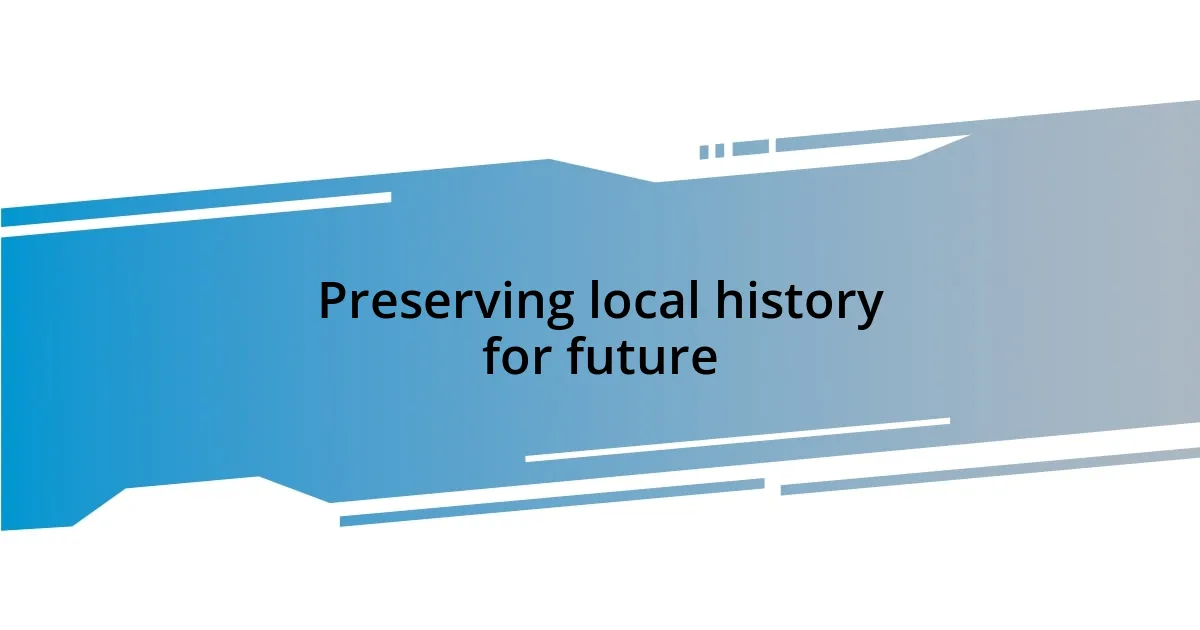
Preserving local history for future
Preserving local history is not just an obligation but a passion that connects generations. I recall visiting a local museum where volunteers were painstakingly restoring artifacts from our town’s early days. The dedication they displayed as they handled old photographs and letters made me realize how these items are much more than mere objects. They are windows into the past, carrying stories waiting to be uncovered. Have you ever touched an item that made you feel a connection to a historical moment? It’s a powerful experience that reminds us of our shared heritage.
I often think about the impact of recording oral histories to preserve authentic voices of the community. During a community event, I participated in a project where residents were invited to share their stories on camera. One gentleman, in particular, spoke about how he helped build the very bridge that still stands today. As he reminisced, his pride was palpable, and it made me reflect on the importance of capturing these experiences for future generations. Isn’t it wonderful to think that these stories will be accessible to our children and grandchildren, giving them a glimpse into a time they know nothing about?
One of the most striking moments I’ve encountered was during a local history fair. A group of schoolchildren displayed their research projects on various significant events in our area. Seeing their enthusiasm and creativity as they shared their findings reinforced my belief that preserving local history is essential for community identity. How can we possibly aspire to a cohesive future without knowing our past? Their engagement reminded me how critical it is to pass down knowledge and inspire young minds to appreciate their roots, ensuring that our local history continues to thrive long into the future.
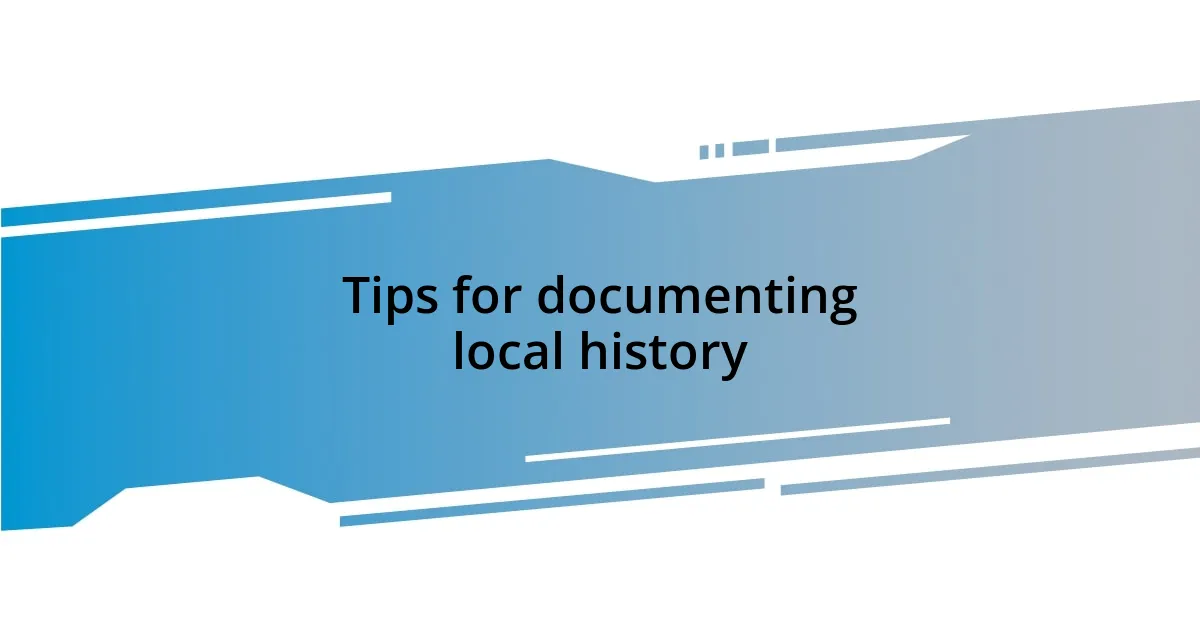
Tips for documenting local history
Documenting local history is an intimate journey that I believe everyone should take. I remember my first attempt at collecting stories from neighbors—my notepad quickly filled up with their vivid memories and experiences. It made me realize that a simple interview could unlock treasures of knowledge just waiting to be shared. Have you thought about how easy it is to start this process?
As I delved deeper, I discovered the importance of keeping accurate records of these narratives. I often found myself revisiting interviews to ensure I captured every emotion and detail. I recommend using audio or video recordings, which can capture the inflections and feelings behind the words. Have you considered how much more engaging a story can be when you can see the storyteller’s expressions? It brings the history to life in a way that written words alone sometimes cannot.
Finally, I encourage you to share the documented stories with your community. I once coordinated a small event where we displayed photographs and stories we’d collected over time. The connections formed that evening were palpable, with people marveling at how intertwined our histories are. Isn’t it thrilling to think how your efforts can weave a tapestry of shared experience, encouraging even more voices to emerge?


